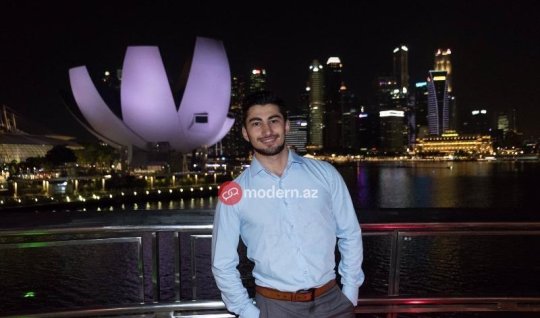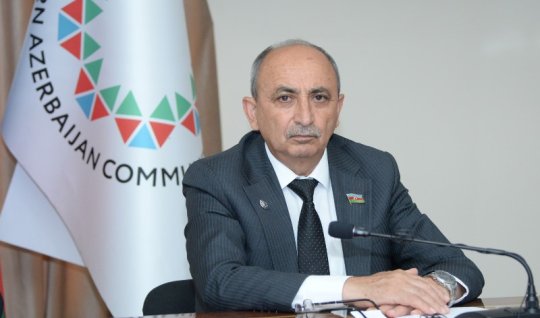Ancient streets, new woes: Tbilisi\'s main problems

In this edition of Modern.az's section titled “Modern Woes of an Ancient City”, we will discuss the city of Tbilisi (or Tiflis), the capital of Georgia, which has ancient and historical roots.
Tbilisi is one of the oldest and at the same time most dynamic cities in the Caucasus. Historically, it has been one of the cultural and economic centers for the other two South Caucasian countries – both Azerbaijan and Armenia.
The city, known for its history-breathing monuments, narrow streets, and ancient culture, is also facing a number of problems today. While rising skyscrapers give the city a special vibrancy, serious problems arise from both environmental and socio-administrative structures.

The city's main problems are concentrated in two directions: the ecological situation and socio-economic problems.
Air pollution
Air quality in Tbilisi has been among the issues of concern for many years. According to research, the average amount of harmful particles (PM2.5) in the air in the city is 20 micrograms/cubic meter, which is approximately four times higher than the safe limit set by the World Health Organization.
The main cause of pollution is considered to be old cars in the city and heating systems operating on solid fuel. As a result, it has a negative impact on both public health and the tourism sector.

Waste problem
One of the city's most serious environmental problems is the Didi Lilo landfill. Approximately 1,300 tons of household waste are transported here daily. This landfill pollutes both the soil and water, and also harms the health of people living in surrounding villages.
Since the waste sorting and recycling system has not yet been fully established, this problem grows and develops year by year.
 Water supply and old infrastructure
Water supply and old infrastructure
Tbilisi's water system still operates on pipelines remaining from the Soviet era. According to the World Bank, although water losses decreased from 73 percent to 64 percent between 2015 and 2020, losses continue to remain at a high level.
This situation negatively affects both water quality and the city's future security.

Transport and traffic jams
Thousands of people lose time in traffic jams every day in Tbilisi. According to research, drivers spend an average of 1–1.5 hours in traffic jams daily. Old roads, a shortage of parking spaces, and the incomplete integration of the public transport system further worsen the situation. This, in turn, leads to both time loss and increased air pollution.
The Tbilisi Metro (two lines, 22 stations) is the backbone and pillar of the city's public transport system. However, in recent years, concerns regarding infrastructure aging, delays in planned modernization works, safety, and service quality remain on the agenda. At the same time, although international financial institutions and the city authorities have announced large-scale modernization projects, certain difficulties are observed with their implementation and timing.

It should be recalled that the Tbilisi Metro operates on infrastructure remaining from the Soviet era. A part of the wagons and stations are approaching the end of their operational life, and therefore the necessity of new wagons and station renovation comes to the fore. A project for the acquisition of 97 new wagons for the metro by AIIB (Asian Infrastructure Investment Bank) has been approved for 2024-2025.
Social problems
In recent years, the increase in tourism and short-term rental homes has made it difficult for the local population to find housing.
House prices and rents in historical centers are sharply increasing, which accelerates the process of gentrification – that is, the displacement of old residents from the city center.
Unemployment is still considered one of the main social problems in Georgia. According to 2024 statistical data, the unemployment rate across the country was 13.9 percent. This is particularly higher among young people. Low wages and informal employment further increase social inequality.
Security and criminal situation
Official statistics show that although a decrease in some types of crime has been observed, pickpocketing and theft are still widespread in the center of Tbilisi, as well as in tourist areas. This is among the factors that negatively affect the safety of both the local population and tourists.
-
19 December 2025, 23:32The USA does not consider Maduro a legitimate leader
-
19 December 2025, 22:02A decision was made regarding 3 Azerbaijanis in Russia
-
19 December 2025, 21:14We participated in resolving the conflict in Armenia and Azerbaijan - RUBIO
-
19 December 2025, 20:21“A search was conducted at the home of the “Fenerbahçe” president”
-
19 December 2025, 20:18Samvel Babayan in the film "AnewZ”
-
19 December 2025, 19:51Vardanyan's separatist activity was exposed with this film - PHOTOS
-
19 December 2025, 14:38Zelensky is a talented artist! - Putin mocked
-
19 December 2025, 14:04Azerbaijani gasoline to Armenia DELIVERED
-
19 December 2025, 13:25Nazarbayev also congratulated Ilham Aliyev
-
19 December 2025, 13:18`Zelenskiy to Ilham Aliyev a letter WROTE`
-
19 December 2025, 12:09National Assembly statement ADOPTED
-
19 December 2025, 11:04National Assembly will issue a statement
-
19 December 2025, 10:48Russia's famous ex-minister his father's grave in Azerbaijan DOES NOT VISIT
-
19 December 2025, 08:15Trump lifts sanctions against Syria
-
18 December 2025, 22:56New sanctions were imposed on Iran
-
18 December 2025, 21:49“Biden asked me this directly” - ZELENSKY
-
18 December 2025, 21:22Gold broke a new historical record
-
18 December 2025, 21:11Regarding the Zangezur corridor FIRST MEETING
-
18 December 2025, 20:23Turkey warned Kurdish forces in Syria
-
18 December 2025, 20:01Aleyna Tilki was released
-
18 December 2025, 18:34Preparation for US-Russia meeting is underway
-
18 December 2025, 18:15Armenia to activate its diaspora in Israel ATTEMPTS
-
18 December 2025, 17:31Pashinyan to Karabakh Armenians made a call
-
18 December 2025, 17:24Pashinyan received NATO Deputy Secretary General
-
18 December 2025, 17:06Kupyansk remains under Russia's control - Zakharova
-
18 December 2025, 14:38Putin Pashinyan to Saint Petersburg invited
-
18 December 2025, 13:20For Vardanyan a life sentence was requested
-
18 December 2025, 12:07TRT editor: In Karabakh after 34 years - PHOTOS
-
18 December 2025, 00:29PSJ became the winner of the Intercontinental Cup
-
17 December 2025, 23:54Trump may declare war





















































